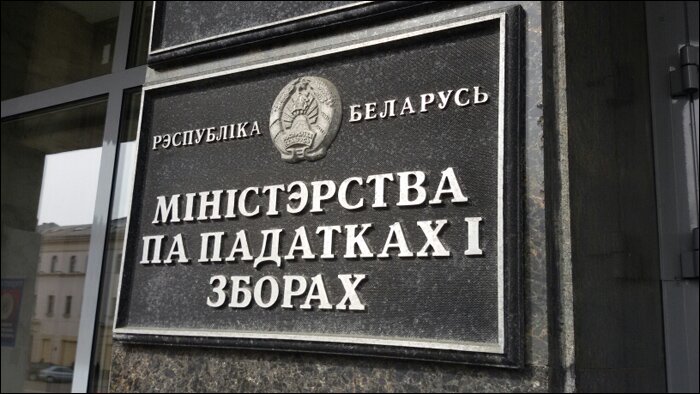Stallholders gather outside tax ministry's office to demand abolition of new rules
Some 300 people gathered outside the tax ministry's office in Minsk on Monday to deliver non-food stallholders' petitions demanding the abolition of new rules introduced by Alyaksandr Lukashenka's Edict No. 222.
Minsk, 14 March. Some 300 people gathered outside the tax ministry's office in Minsk on Monday to deliver non-food stallholders' petitions demanding the abolition of new rules introduced by Alyaksandr Lukashenka's Edict No. 222.

The crowd included organizers Anatol Shumchanka, who leads a small business association called Perspektyva, and Mikalay Statkevich, as well as opposition politicians Uladzimir Nyaklyayew, Maksim Vinyarski and Pavel Sevyarynets and small business activist Ales Makayew.
Standing in front of the ministry's building, Mr. Shumchanka made an attempt to speak to Tax Minister Syarhey Nalivayka by phone but the minister's secretary said that he was not in the office.
The activist also called the office of Deputy Tax Minister Uladzimir Mukvich, inviting him to walk out of the building and accept the petitions. The deputy minister's secretary replied that he would not do so.
Mr. Shumchanka eventually entered the building himself, handing some 1,000 petitions to the ministry's press secretary, Syarhey Shkut. «We hope that you will take these petitions into consideration and we will arrive at a constructive solution,» said the activist.
After emerging from the building, Mr. Shumchanka warned that stallholders reserved the right to appeal to Alyaksandr Lukashenka if the ministry produced no response to the petitions. In particular, he said that vendors may gather in front of the Presidential Administration's building next time.
«This is the first time that people have gathered outside the House of Government since 2010,» said Mr. Shumchanka. «But we need massive involvement and unity.»
He announced plans to reapply to the city authorities for permission to stage «stallholders' march.» «If there are inspections and confiscations our reaction will follow. We will be putting pressure [on authorities] as long as they interfere with our work,» said the activist.
There were many police officers in uniform and plain clothes at the scene. They included Alyaksandr Barsukow, head of the Minsk city police department; Maksim Hryshchanka, deputy chief of the city's public security police; and Dzmitry Balaba, chief of the Minsk City Special-Task Police Unit.
Many vendors have kept their stalls shut since January 1, fearing penalties for their failure to comply with Edict No. 222, which prohibits stallholders from selling apparel, footwear, toys, toiletries and other consumer goods without documents confirming their compliance with requirements.
Since the start of the year, those who want to sell imported goods, which mainly come from Russia, must present proof of origin, something that Russian wholesalers generally do not provide.


Disqus?